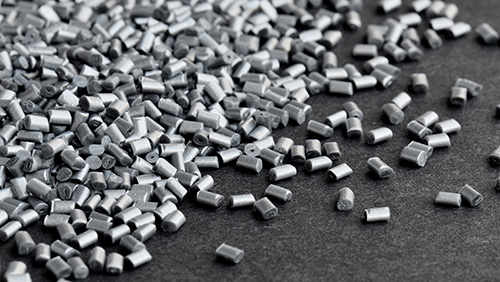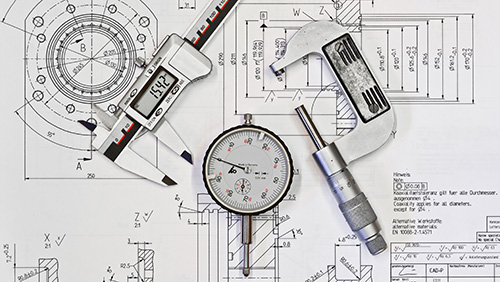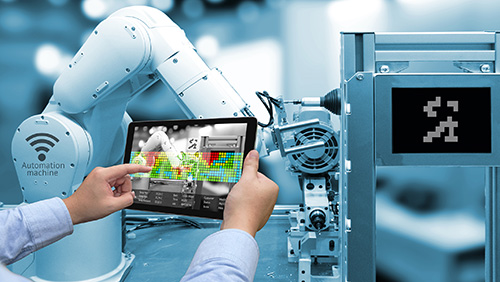Find projects
Biopolymers
With the end of the 20th century, biopolymers experienced a boom and have been growing continuously ever since. In 2019, they reached a global production capacity of about 10 million tons. Depending on the raw material and degradability, biobased and biodegradable plastics are distinguished. The largest representative of biopolymers on the market is polylactide (PLA), which is mainly used as packaging material. However, biopolymers are now also being used in other areas such as automotive, electronics and cosmetics. In this exciting development of sustainable materials, SKZ has been involved in various projects for many years and is your contact to develop sustainable solutions. In addition to the selection of suitable materials and the creation of suitable formulations, a wide range of process and processing equipment is available to you in our technical center for your material development. At SKZ, a wide range of analyses and processing options are available to you, including material analyses (rheological and thermal analyses), compounding behavior, extrudability and injection moldability, determination of suitable welding parameters, statements on bondability, surface pretreatment, additive manufacturing (FDM).
Services
Bioplastics can be optimized in many ways in terms of their properties by adding processing aids, stabilizers, adhesion promoters, fillers and reinforcing materials, among other things. In this way, gaps in manufacturers' portfolios can be closed by producing tailor-made compounds.
We would be pleased to examine the influence of the individual formulation components on your behalf
- on the compounding process
- the resulting properties and
- the subsequent processing and treatment (extrusion, injection molding, adhesion behavior and joining technologies)
The property profile of bioplastics can be adapted to the requirements of the end product by compounding. Here, SKZ focuses on process engineering for the continuous compounding of bioplastics as well as profile extrusion and works closely with industry partners on solutions aimed at optimizing the entire process chain and rapidly implementing them in production applications.
We are happy to share our experience with you:
- Evaluation of different machine concepts
for the processing of biopolymers
(planetary roller extruder, continuous mixer, co-rotating extruder, ring extruder, ...) - Determination of processing parameters for bioplastics
- Development of suitable processes for pipe and profile extrusion
- Customized die design for the processing of biopolymers
- Equipment of tools with optimized measuring technology
for the processing of different biopolymers
At SKZ, we are permanently working on closing gaps in our knowledge of bioplastics with regard to storage, drying, injection molding processing and aging on the molded part.
- Determining the influence of machine size and screw geometry on processing behavior and the resulting molded part properties.
- Development of system expertise on the complete process from the plasticizing and molding stages to the finished molded part (e.g. location and size of material degradation, etc.)
- Investigation of the coloration and process-dependent color stability of biopolymer-based color batches and novel liquid colors
- Investigation of the adhesion properties of biobased hard/soft composites
Both products made of biopolymers and the processes required to manufacture them can be monitored in the laboratory or directly inline. A number of different non-destructive and, in some cases, non-contact measuring and testing methods are available for this purpose. Methods based on ultrasound, X-ray, thermography and terahertz technology, among others, enable, for example:
- the determination of material properties of biopolymers such as filler content,
particle size distributions, fiber orientations, - the detection of structural defects in biopolymers such as pores, cracks, voids and agglomerates, and
- the layer thickness measurement of thin-walled biopolymer products such as multilayer films on a micrometer scale.
Are you looking for thermal or adhesive joining techniques to join your materials with a high quality? You want to pre-treat or analyze the surface of your plastic components? SKZ supports you in the selection of mechanical or physical surface pretreatment as well as joining techniques according to technical and economic criteria, also at your site.
To the areas of welding | bonding | surface technology
State-of-the-art equipment for best results and products
In our state-of-the-art laboratories, we conduct research into the materials of tomorrow. We work closely with industry to make many good products even better and, above all, more sustainable. Challenge us. Together we will find a solution to your problem.


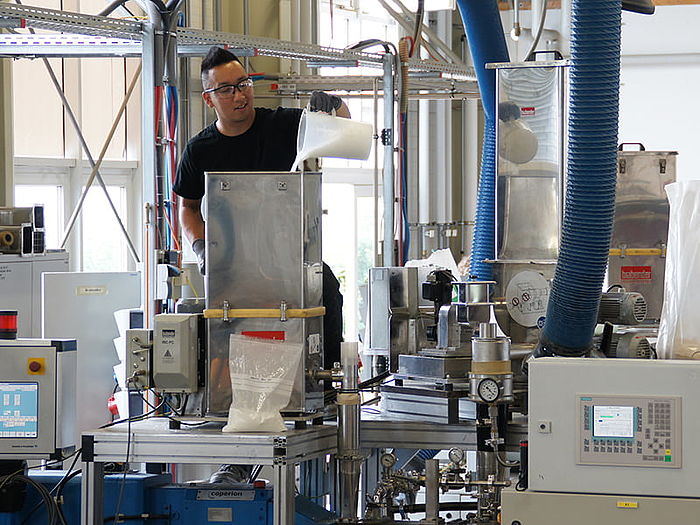
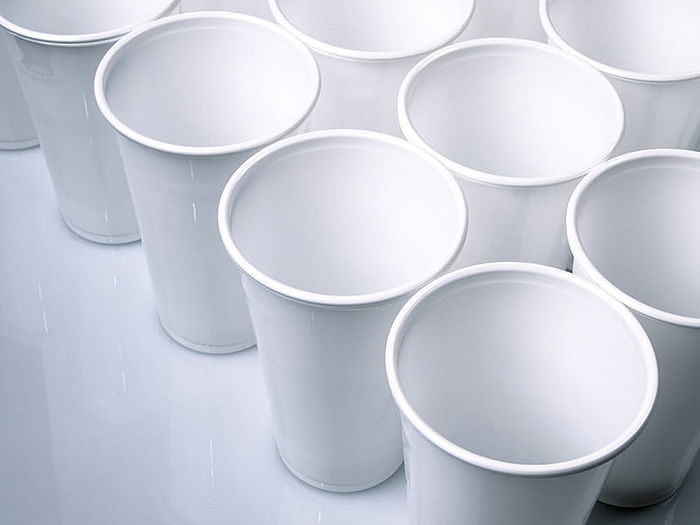
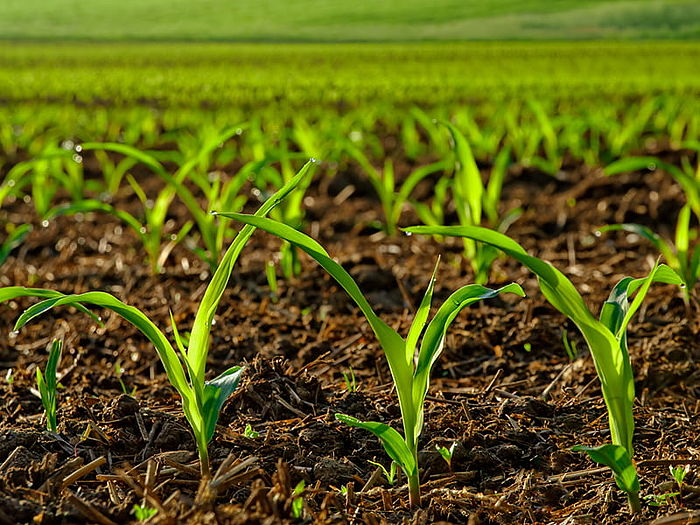
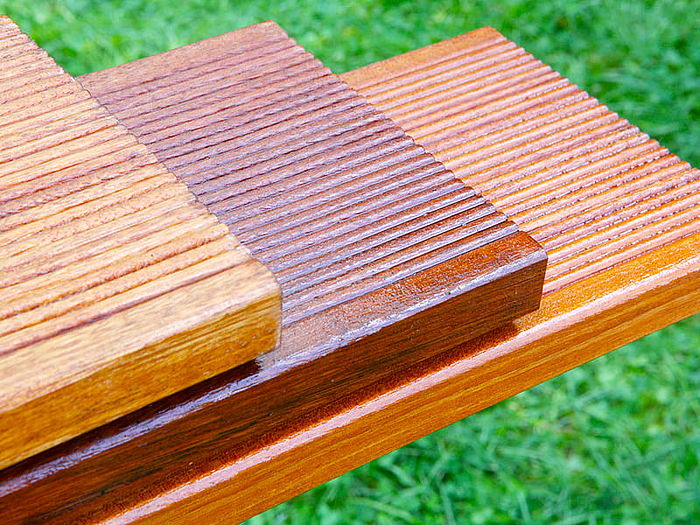

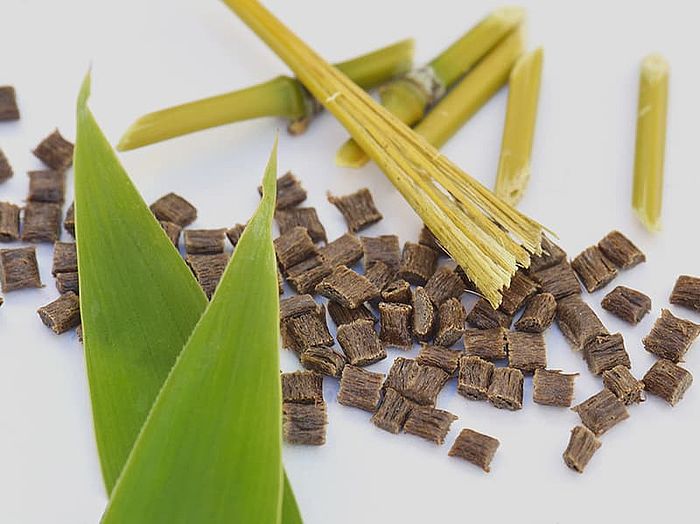
Technical equipment for analytics
- Tensile properties according to DIN EN ISO 527 or ASTM D638
- Charpy impact strength according to DIN EN ISO 179
- Hardness according to DIN EN ISO 868 or ASTM D2240
- Dynamic mechanical analysis (DMA)
- Creep and creep rupture
- Fatigue / endurance test
- Gel permeation chromatography (GPC)
In this method, polymer molecules are separated on the basis of their hydrodynamic volume. In this way, the molecular weight distribution of polymers can be determined. - Gas chromatography with mass spectrometry coupling (GC/MS)
The gas chromatograph is used to separate the plastic to be analyzed and the mass spectrometer to identify and quantify the individual components. For example, volatile additives, solvents and thermal decomposition products of the polymer can be identified, such as aliphatic and aromatic hydrocarbons, alcohols and phenols, phthalates, siloxanes and many more.
- High pressure capillary rheometer (HKR) - Company: Göttfert
The flow behavior of a molding compound depends on the molecular structure of the polymer. To evaluate the processing possibilities of a molding compound, the determination of the shear viscosity function is necessary. - Melt flow tester (MFR) - Company: Göttfert
- Elongation tester (Rheotens)
To determine the effective extensional viscosity, the HKR is coupled with an extensional tester (Rheotens). This test is important for film extrusion and blow molding, among others.
- Dynamic thermostability
- Plasticizing time
- Static thermostability (DHC according to DIN EN ISO 53 381)
- Vicat softening point according to DIN EN ISO 306
- Heat deflection temperature (HDT) according to DIN EN ISO 75
- Temperature and thermal conductivity according to DIN EN ISO 22007-4
- Particle size distribution: dynamic image analysis or laser diffraction (camsizer, mastersizer), as well as sieve analyses
- Density determination: by means of buoyancy methods or liquid pycnometer
- Bulk density
- Flowability
- Filler content: by ashing
- Microscopic analyses: SEM/EDX (scanning electron microscopy with energy dispersive X-ray spectroscopy),
polarization, light and heating microscopic analyses

